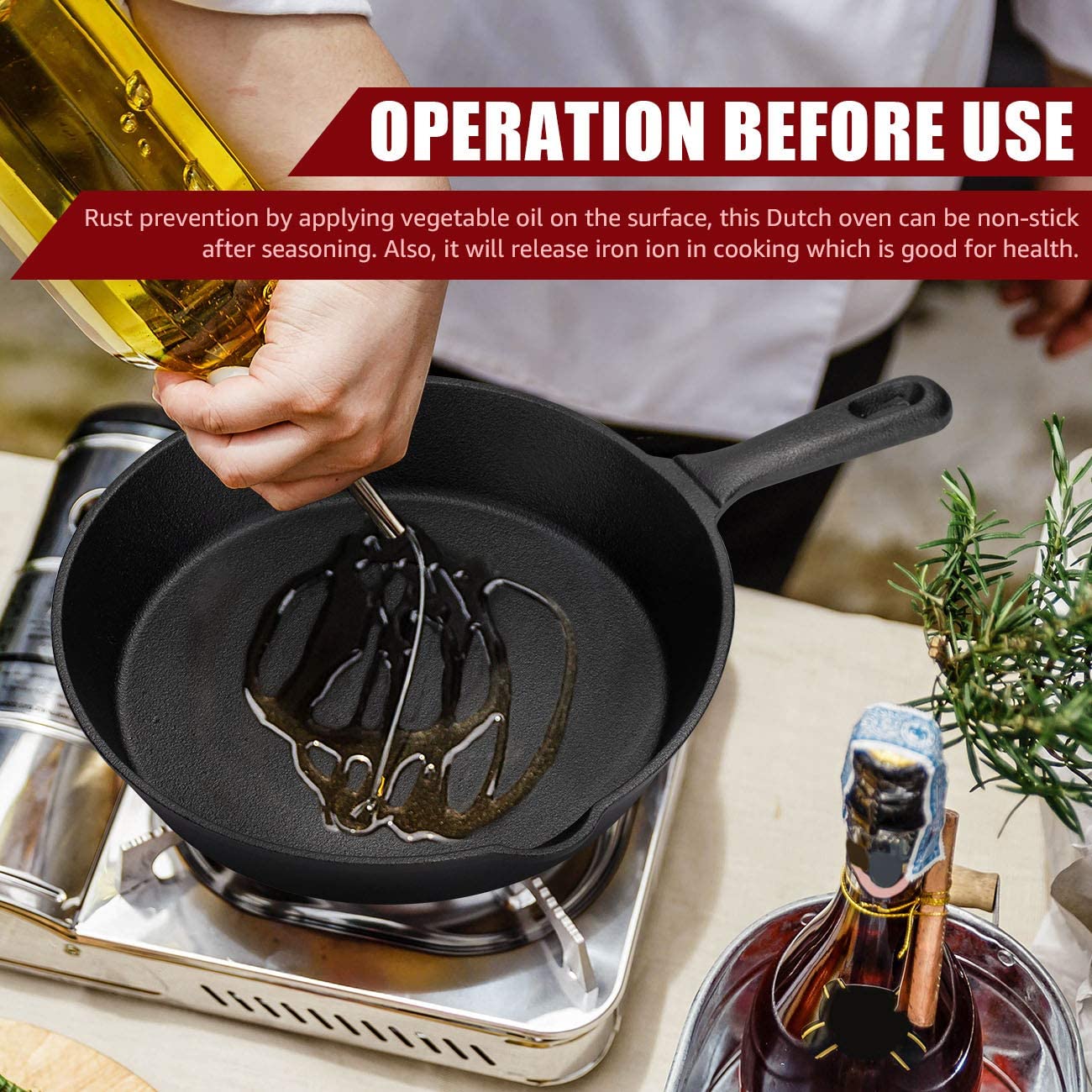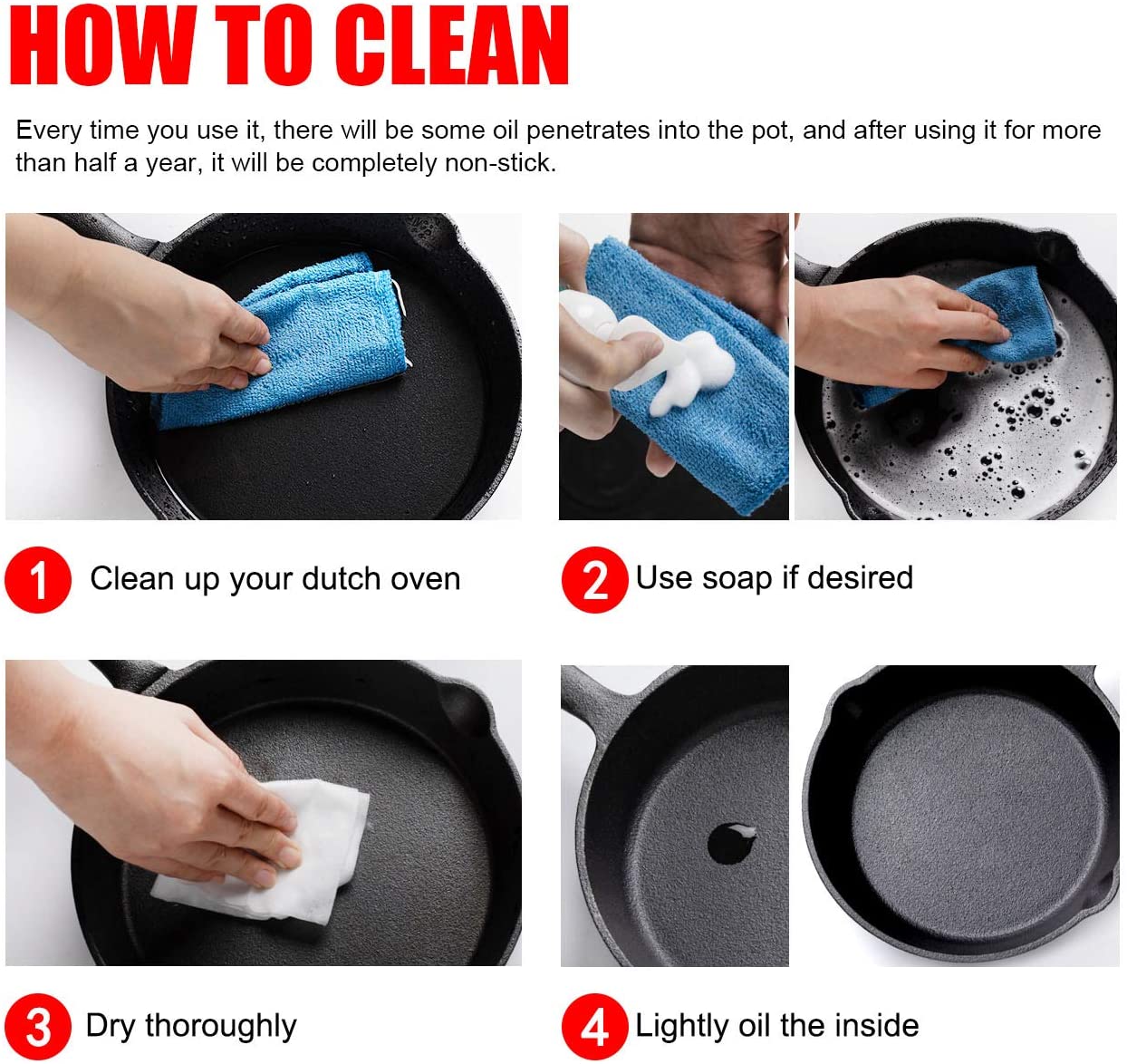1. Buy pre-seasoned, but don’t cook with it right away.
When you get the cast iron skillet, still want to give it a little bit of care when it first comes out of the box. You can just rinse it and dry it, but it’s nice to give it a few coatings of a quick seasoning before you use it to build up a nice little base. Pull it out of the box, rinse it off, heat it on stove, then oil and blot gently all around the pan to make sure there’s no area with too much oil. Let it cool to room temp, then repeat.

2. Dish soap isn’t the enemy of cast iron cookware
Never ever put it in the dishwasher and don’t use bleach, but any mild soap is fine, eco-friendly stuff is fine—I use Dawn on mine all the time.
3. Oil dry pans.
I think of seasoning my pan as part of my kitchen cleanup. Sometimes it will look dry, but sometimes you can tell that it really doesn’t need more oil. Use just a teaspoon or less of neutral oil, like flaxseed, for a 10- or 12-inch skillet.
4. Be wary of flaking.
Cast iron is not naturally nonstick, but heating oil to very high temperatures on that metal surface forms this layer that becomes impenetrable to water and to sticking. With excess fat, though, that layer can peel off. If you’re ever cooking and you get flakes of black stuff, it’s not metal—it’s that layer of polymerized fat. If you over-oil it, it gets sticky, and that’s how you know.
5. For cleaning, avoid anything too abrasive—but metal is actually okay.
For everyday cleaning, use a soft vegetable brush. If you need to do any real hardcore scrubbing you can also use a Tawashi palm scrubber. I love mine. And Dave Arnold recently proved it was okay to use metal utensils on your pan, so if you do need to scrape something off, that’s an option.”

6. Get rid of gunk.
If you’ve got debris stuck to your skillet, leave your pan on the heat, put the heat back on really high, pour some water in there, and let the water evaporate and cook the debris off. Use a wooden or metal spatula to scrape the debris to lift it off. Instead of water, you can also scrub the pan with kosher salt or coarse sea salt, then rinse it out with water.
7. Store them properly.
Once your pan is completely dry, if you’re not oiling it, stack it with paper towels. You never know if that other pan above or below it is wet! And it can always help if there’s a little too much oil on your cast iron. If you’re seasoning your pan], let it come to room temperature and absorb all the oil before storing it.
Post time: Jan-29-2023